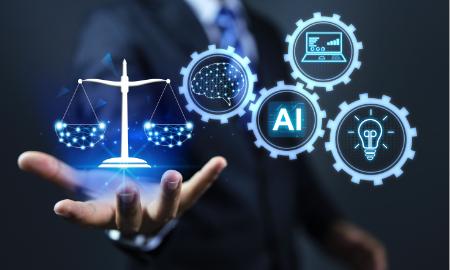
Artificial Intelligence (AI) is revolutionizing the legal industry, introducing efficiencies, enhancing accuracy, and expanding access to justice. As we progress through 2025, Legal AI continues to reshape how legal professionals operate, presenting both opportunities and challenges that require careful consideration.
Understanding Legal AI
Legal AI refers to the integration of artificial intelligence technologies into legal practices to automate tasks, Legal AI analyze vast amounts of data, and assist in decision-making processes. This encompasses various applications, including:
-
Document Review and E-Discovery: AI tools expedite the process of reviewing and categorizing legal documents, significantly reducing time and cost associated with manual methods. For instance, Minter Ellison's in-house AI software, Lantern, can review 3,500 documents per hour, enhancing productivity and efficiency in legal workflows.
-
Legal Research: AI-powered platforms enable legal professionals to conduct comprehensive research by analyzing case law, statutes, and legal precedents swiftly. This facilitates informed decision-making and strategic planning.
-
Contract Analysis: AI algorithms can identify key clauses, potential risks, and compliance issues within contracts, aiding in the drafting and negotiation processes.
-
Predictive Analytics: By analyzing historical data, AI models can forecast legal outcomes, assisting lawyers in assessing the viability of cases and formulating effective strategies.
Benefits of Legal AI
The adoption of AI in the legal sector offers numerous advantages:
-
Increased Efficiency: Automation of routine tasks allows legal professionals to focus on more complex and strategic aspects of their work, leading to enhanced productivity.
-
Cost Reduction: AI-driven processes reduce the need for extensive manual labor, resulting in cost savings for law firms and clients alike.
-
Improved Accuracy: AI systems can process vast amounts of data with precision, minimizing human error and ensuring more reliable outcomes.
-
Enhanced Access to Justice: AI tools can democratize legal services by providing affordable and accessible solutions to individuals and organizations, particularly in underserved communities.
Ethical and Legal Considerations
While Legal AI presents significant benefits, it also raises critical ethical and legal concerns:
-
Bias and Fairness: AI systems can inherit biases present in their training data, leading to unfair outcomes in legal decisions. For example, predictive tools used in sentencing have been criticized for disproportionately affecting minority groups.
-
Transparency and Accountability: Many AI algorithms operate as "black boxes," making it challenging to understand how decisions are made. This lack of transparency can undermine trust in the legal system and complicate accountability.
-
Data Privacy and Security: The use of AI in legal services involves handling sensitive client information, necessitating stringent data protection measures to prevent breaches and misuse.
-
Job Displacement: The automation of tasks traditionally performed by junior lawyers raises concerns about job displacement and the future of legal employment.
-
Regulatory Compliance: Legal AI applications must comply with existing laws and regulations, which may vary across jurisdictions, posing challenges for global implementation.
-
Over-Reliance on Technology: Excessive dependence on AI tools may diminish human oversight, potentially leading to errors or oversights in legal decision-making.
The Future of Legal AI
Looking ahead, the role of AI in the legal profession is expected to expand, with advancements in machine learning and natural language processing enhancing the capabilities of AI tools. However, the integration of AI must be approached with careful consideration of ethical standards, regulatory compliance, and the preservation of human judgment in legal processes.
Conclusion
Legal AI is poised to revolutionize the legal industry by streamlining processes, improving accuracy, and expanding access to justice. However, its integration must be carefully managed to address ethical concerns and maintain the integrity of the legal profession. By embracing AI responsibly, the legal sector can harness its potential to deliver more efficient and equitable services to clients and society at large.



